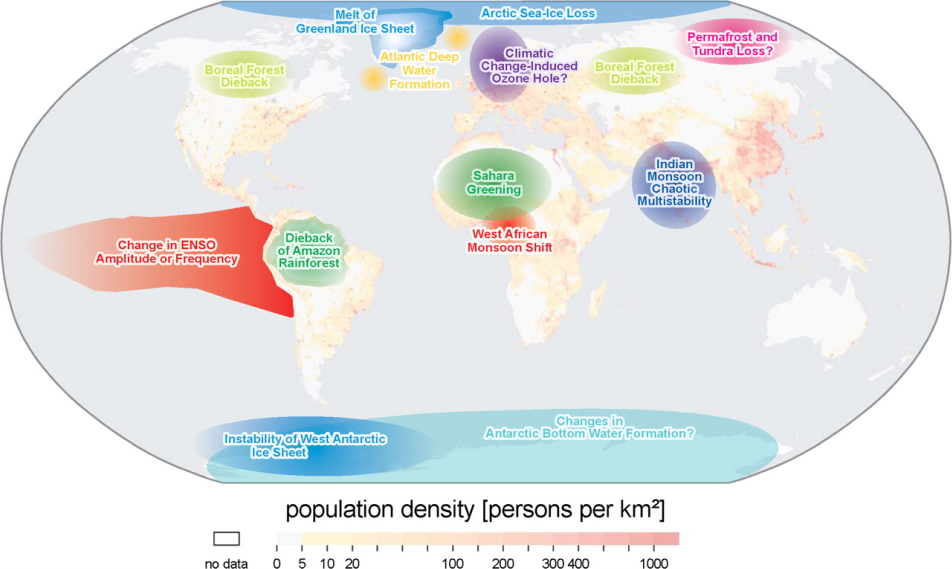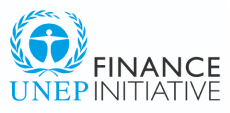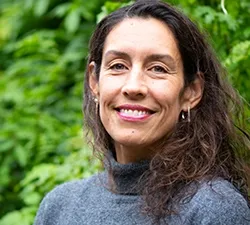Earth System Finance
“Tripping elements” in the earth system
Insights from the Earth system sciences over the last few decades show clearly that changes in the planet’s climate system can unfold in rapid and irreversible ways, threatening to undermine economic and financial stability, and therefore global objectives for sustainable development.
Scientists have highlighted the existence of specific regions and biophysical processes of exceptional importance for the stability of the climate system – often referred to in the academic literature as “tipping elements” in the Earth system.

Figure showing map of potential policy-relevant tipping elements in the climate system, overlain on global population density. From: Lenton, T.M., H. Held, E. Kriegler, J.W. HAll, W. Lucht, S. Rahmstorf and H.J. Schellnhuber. 2008.Tipping elements in the Earth's climate system. PNAS, 105 (6) 1786-179. https://doi.org/10.1073/pnas.0705414105
Focus on the role of its connections to “Earth system tipping elements”
The ambition of the Earth System Finance project is to bring new science-based perspectives to current discussions about the role of finance for sustainability, with a particular focus on the role of its connections to “Earth system tipping elements”.
The project identifies, maps out, and visualizes how global financial flows underpin large-scale modifications in the world’s ecosystems with repercussions for the stability of the Earth’s climate system. Should they tip, the consequences could be enormous, both locally and globally, and have cascading effects on other tipping elements, thus risking to dangerously accelerate global warming.

Outreach activities are planned with key actors in the financial sector
This project will provide tangible insights of relevance for both academia and the financial sector on emerging financial risks created by the possibility of such rapid and irreversible environmental changes. In particular, outreach activities are planned with key actors in the financial sector to raise awareness on the urgency of action to bolster the resilience of critical tipping elements, starting with boreal forests and tropical rainforests.
The project is a collaboration between GEDB, Stockholm Resilience Centre (Stockholm University), Future Earth, the and UNEP Finance Initiative. With funding from Vinnova Futura Foundations and and the Erling-Persson Family Foundation through GEDB.






